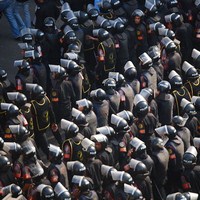
Does China have any real interest in cooperating on international crisis management with the West? Chinese officials at the United Nations have sided with Russia over Syria and refused to countenance a new sanctions resolution against Iran. These issues, coupled with Beijing’s assertive approach to sovereignty disputes in the western Pacific and Southeast Asia, have overshadowed those cases in which China has pursued cooperation, including efforts to stop a war between Sudan and South Sudan. Last week, however, there was a fillip for those who hope that China will invest more in collective security arrangements. On Thursday, the U.N. Security […]















